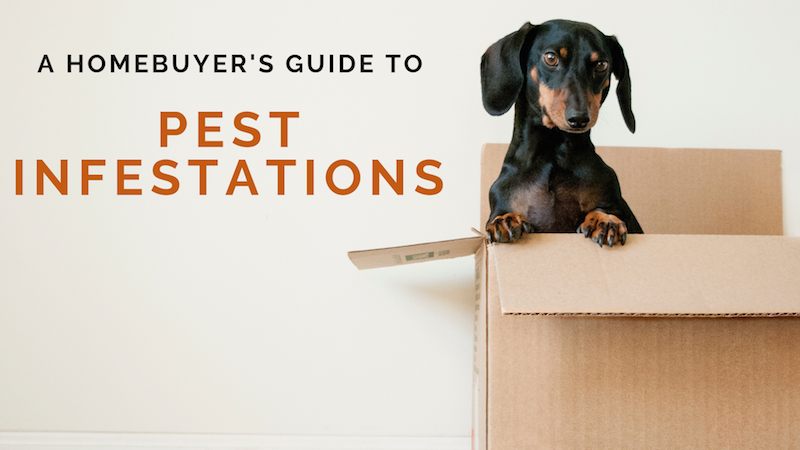
What can happen to a home with a insect or rodent infestation?
A lot can happen when an infestation has overtaken your property. Not only can these pests affect your chief investment — your home — but they can damage your personal property as well. Pest infestations can destroy…
- A home’s structure: Leaky roofs and cracked siding can corrupt your home’s integrity, including its roof, siding, electrical systems, and foundation. Even more, it can also cause unsafe air conditions, creating an unhealthy environment for you and your family.
- Belongings: Once pests are in your home, the next target will be your personal belongings. This means wool shirts and blankets, along with other natural fibers, furniture, and clothing, can be destroyed by moths. Ants and rodents can get into food, soiling your supply and making a mess.
- Yard and landscape: One of the more glaring and immediate issues will be damage to your yard and outdoor spaces. Pests will dig holes in your yard and uproot vegetation, creating problems that could take years to solve.
- You and your pets: The most pressing issue will always be you and your family’s health. When pests leave waste and insects carry disease into your home, it can severely harm you, your family, and even your pets. Animals can get fleas or fight with potential rodents. You and your children might get stung by bees, suffer from a bed bug infestation, or have a scary run-in with a rabies infected pest.

What animals to be on the lookout for — and what to ask the homeowner before buying
In the Portland and Vancouver area there are a number of pests to look out for. While they might not all be immediately seen, ask the homeowner about the home’s history with pest control. Has the home ever had a pest issue? Did the homeowner have pest insurance? If there was a pest issue, did they take care of it themselves, or hire a reliable pest control team? Some pests to ask about include:
- Rodents like mice and rats
- Bats
- Squirrels
- Ants
- Moths
- Beetles
- Bed bugs
- Hornets and wasps
- Spiders
- Fleas
If the homeowner or realtor discusses any prior history with these pests, dig further. Ask if the infestation is a lingering issue or was a one-time problem. Also ask what was done to correct the issue and what damage was inflicted on the home.
Past pests? Ask what kind of pest control was used
Using environmentally friendly pest-control treatments is good for more than just the planet (though that’s pretty great, too). When pesticide or other damaging chemicals are used to control pests, those treatments can stick around. The World Health Organization estimates there are 3 million instances of pesticide poisoning each and every year. Repeated pesticide exposure has been linked to chronic health issues such as:
- Birth defects
- Cancer
- Genetic modification
- Blood disorders
- Nerve disorders
Short term health issues that can develop include:
- Headaches
- Skin and eye irritation
- Dizziness
- Nausea
These are real problems that can happen to not only humans, but to pets, too. Ingesting pesticides or other damaging chemicals can lead to vomiting, seizures, or even death.

Environmentally friendly pest control
If the homeowner has indicated that they had pest control completed, make sure they used environmentally friendly pest control treatments to ensure that your new home will be a safe environment for you and your family. Some examples of environmentally friendly pest control treatments include:
- Biological fluids that control pests such as scents, tastes, and oils
- Safer, greener chemicals
- Targeted treatments over a wide “catch-all” chemical treatment
These treatments are not only safer, but more effective since they’re targeted and focused on holistic treatment of the infestation.
Signs of a home infestation
Of course, asking can never give you complete confidence that the infestation has been totally solved. Successful pest control is centered around 3 pillars:
- Inspection: We’ll come to your home and ensure that there is no current infestation. We’ll also ensure anywhere future pests could access your home are closed off. We’ll inspect the whole kit and caboodle — all rooms, pipes, electrical systems, foundations, and much more.
- Exclusion: With a mixture of preventative actions and comprehensive repairs like sealing gaps and holes, we create an impenetrable barrier pests can’t cross.
- Extermination: If we do indeed discover an infestation, we’ll use our eco-friendly treatments to target the exact pests infested in your home. This ensures your family and pets stay safe.
Are you concerned your potential new home has a pest problem, or just want peace of mind that your newest investment is sound? Contact EcoCare Pest Solutions today to schedule a free in-home consultation.

Self inspection
If there is any suspicion of a pest control issue, we always recommend having a professional pest control specialist come out to check on the property. If you decide to go at it yourself though, look for the following issues to determine if the house may have a potential pest control issue.
- Physical signs of pests
- Clusters of dead bugs under cabinets and other inconspicuous places
- Droppings of any kind
- Pest control products anywhere in the home — this is a sign that the homeowner has been self-treating
- Holes and signs of animal damage around the home
- Peculiar smells and noises around the home and property
- Damaged plants on the property
- Mole or ant hills
- Lawn damage
Have the sinking feeling pests are in the home? Call EcoCare Pest Solutions
We’re available to answer questions and come out to inspect your potential new home to either confirm or disprove your suspicions. When it comes to such a large investment, it’s always better to be safe than sorry. Call (503) 222-5566 to learn more.




